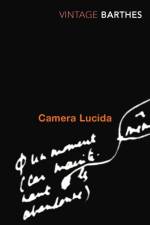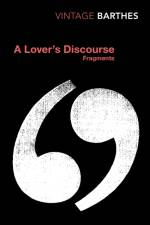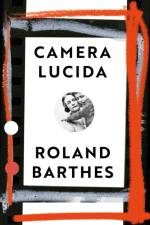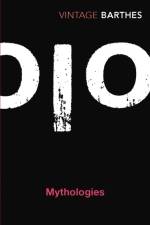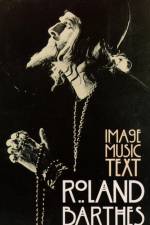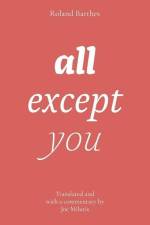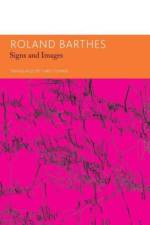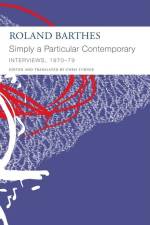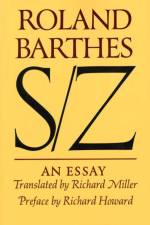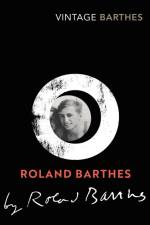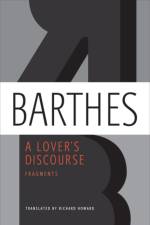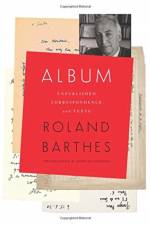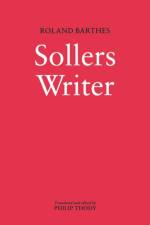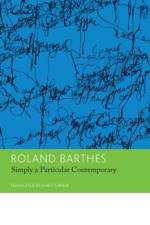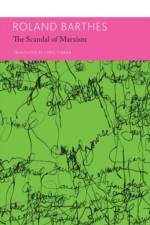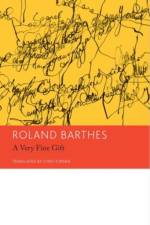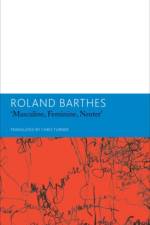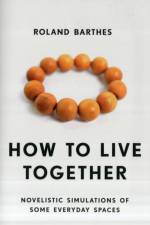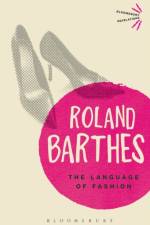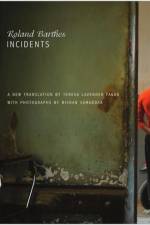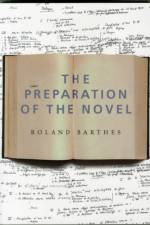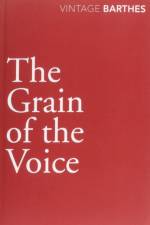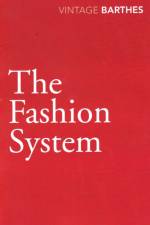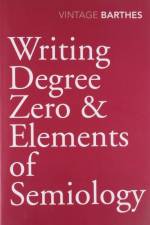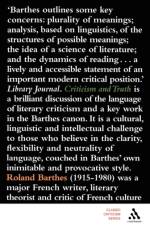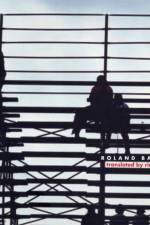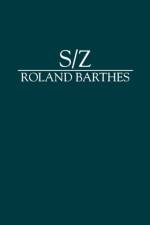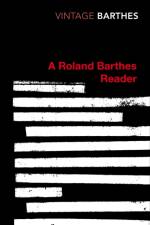- Essays and Interviews, Volume 3
av Roland Barthes
277
Roland Barthes, whose centenary falls in 2015, was a restless, protean thinker. A constant innovator, often as a daring smuggler of ideas from one discipline to another, he first gained an audience with his pithy, semiological essays on mass culture, then unsettled the literary critical establishment with heretical writings on the French classics, before going on to produce some of the most suggestive and stimulating cultural criticism of the late twentieth century (Empire of Signs, S/Z, The Pleasure of the Text, Camera Lucida, Roland Barthes by Roland Barthes). In 1976, the one-time structuralist 'outsider' was elected to a chair at France's pre-eminent academic institution, the College de France, choosing to style himself its Professor of Literary Semiology, though this last somewhat hedonistic and more 'subjectivist' phase of his intellectual adventure was cut short by his untimely death in 1980. The greater part of Barthes's published writings have been available to a French audience since the publication in 2002 of the expanded version of his Oeuvres completes [Complete Works], edited by Eric Marty. The present collection of essays, interviews, prefaces, book reviews and other occasional journalistic pieces, all drawn from that comprehensive source, attempts to give English-speaking readers access to the most significant previously untranslated material from the various stages of Barthes's career. It is divided (not entirely scientifically) into five themed volumes entitled: Theory, Politics, Literary Criticism, Signs and Images (Art, Cinema, Photography), and Interviews. Barthes's earliest interest is in literature--in theatre and the classic realist novel, but also in the more experimental writers of the 1940s and 50s (literature of the absurd, nouveau roman etc.). The articles translated in this volume run from his mid-1950s writings on popular poetry, the giants of the nineteenth century novel (Hugo, Maupassant, Zola), and the narrative innovations of Robbe-Grillet and his associates through to writings from his later years on Sade, Rousseau and Voltaire, and the longer study 'Masculine, Feminine, Neuter' which is, in the words of his French editor, the 'first outline' of his remarkable critical work S/Z.

